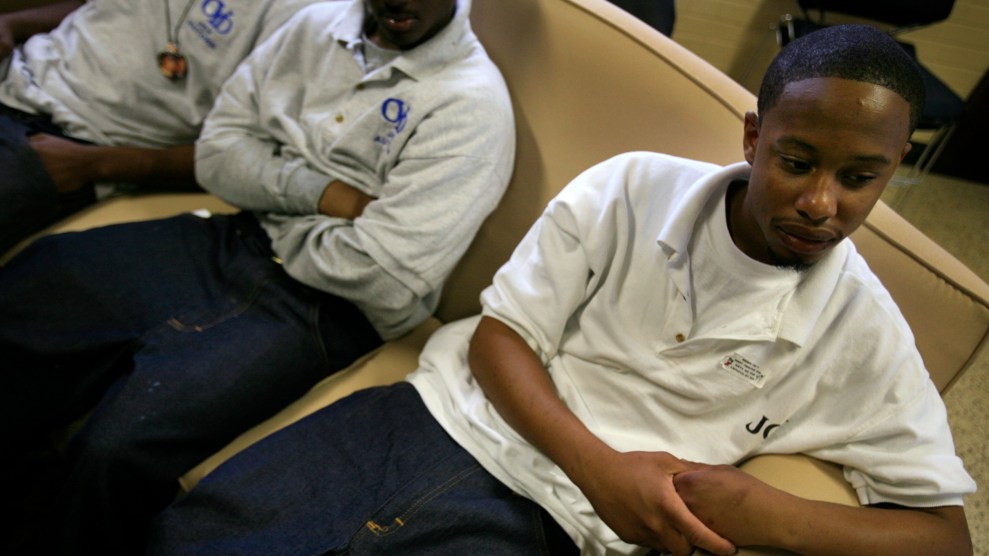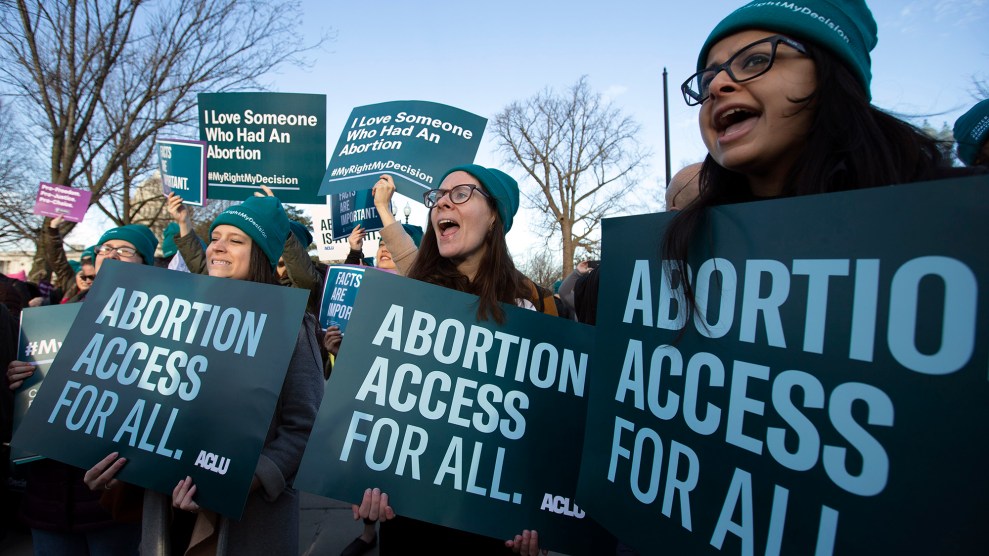
At Jetson Youth Center, a correctional facility in East Baton Rouge Parish, resident Malcolm M. listens during an afternoon check-in on Dec. 12, 2007.Tim Mueller/AP
On Thursday, the Louisiana House passed a bill to make some juvenile criminal records public in three majority-Black parishes. Sponsors argue that providing the public with these records would offer transparency in crime-afflicted areas. If signed into law, the measure would serve as a two-year pilot program.
Critics of the measure, House Bill 321, say the measure is racist, noting that the three parishes to which it would apply—Caddo, East Baton Rouge, and Orleans—are 50 percent, 47 percent, and 60 percent Black, respectively, with Black residents making up the majority of their populations, according to US Census Bureau data. The bill would not be rolled out in Jefferson Parish, however, which is larger than both Cado and Orleans parishes and is majority white.
“Let’s be real. We know what this is about. The optics are obvious. Let’s stop playing around with this,” Rep. Edmond Jordan (D-Baton Rouge) told the Times-Picayune. “If you’re from Baton Rouge, if you’re from Shreveport, if you’re from New Orleans, you should be offended by this.”
Advocates in favor of the bill have said its aim is to increase accountability. “This bill is about public safety,” Republican Rep. Debbie Villio, who represents Jefferson Parish and sponsored the bill, said on the House floor, according to the Times-Picayune. “The public has a right to know.”
But criminal justice advocates question why juvenile court records—which would include not just convictions but also accused crimes—need to be made public in the first place. “I think, in this instance, it is becoming very clear because of the locations [for this legislation] that there are certain children—particularly Black children—who we are unwilling to provide a second chance to, and we quickly look at them and decide, ‘Oh, they are just not going to be better,’” Kristen Rome, the co-executive director of Louisiana Center for Children’s Rights, told the Associated Press. “Those records are going to always be available for everyone to see…and that creates a stigma, which creates an environment where they can’t thrive.”
It’s not the first time Louisiana has come down hard on children. Last fall, the state moved to incarcerate children as young as 10 in Louisiana State Penitentiary, or Angola, a former maximum security prison. Youth advocates including the ACLU promptly challenged the decision in court.
















